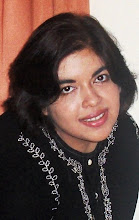On this day of Advent I give you Parang Music Trini style. Parang music is indeed prayer in the form of song because in its purest form it describes the Nativity scene and the joyous birth of the Christ child. Here is an excerpt of a story kept at this link on Trinidad and Tobago's National Library site:
'By Abdelkader Marquez
Trinidad Guardian
December 25th 1989
Page 6
PARANG MUSIC WHICH CHARACTERISES THE CHRISTMAS SEASON OF TRINIDAD AND TOBAGO HAS ITS ROOTS IN VENEZUELA BUT IT HAS DEVELOPED ITS OWN CHARACTERISTICS, WHILE ABSORBING COLOMBIAN AND EVEN CUBAN MUSIC IN ITS REPETOIRE.
SINCE A VENEZUELAN DIPLOMAT WROTE IN 1979 ABOUT PARANG, THE MUSIC HAS EVOLVED FURTHER WITH ELECTRONIC INSTRUMENTS, NEW COMPOSITIONS AND NEW INFLUENCES.
THIS ARTICLE EXPLAINS WHAT PARANG IS ALL ABOUT.
The word Parang represents the written equivalent to the phonic Parran, which in turn is an adulteration of the Spanish word Parranda.
Dr. Daphne Taylor explains that the Trinidadian has incorporated into the Caribbean language many words of Spanish origin by the simple procedure of eliminating from the word the last syllable or last letter.
For example, "guarap" for "guarapo" sugar cane juice; "lanap" for " la hapa" an extra portion; "alpagat" for "alpargata", sandal; and "taso" for "tasajo", dried meat; "planas" for "planaso" this term being frequently associated with regard to relations between the Trinidadian fishermen and the National Guards; and even the verb "mamaguy" for the Venezuelan idiom, "mamadera de gallo".
RELATED:
In Trinidad, Parang has various meanings, which are closely related between each other.
As a noun, it identifies a custom originating from Spanish tradition in the island, which consists in celebrations which take place from the last week in November until January 6th, even though the real season starts during the middle of October with the rehearsals by musical groups and ends after January 15th.
During this time, on radio, TV and at private parties, etc., nothing but parang is heard and this is expressed in the following Trinidadian piece: Parang por la manana.
Parang por la manana
Parang al mediodia
Parang a toda hora
Como si fuera comia
ORIGIN:
As an adjective, Parang depicts music, musical inistruments, dances, costumes, etc. all related to the season.
In the form of a verb, to parang means to wander, to travel merely for the sake of pleasure and without destiny.
Paranderos, of course, are all those who participate in the celebrations.
The origin of Parang is still a matter for discussion amongst its followers.
Some maintain that the custom was introduced by Spain during the Spanish occupation of Trinidad (1498-1797) and was adapted to the island's environment, influenced by its contact with Venezuela and kept alive by the conostant communication with that country.
Others believe that the custom came from Spain through Venezuela during the Spanish administration of both countries and continued after the capitulation, through continued communication with Venezuela.
In reality, these discussions are irrelevant since today, Trinidad Parang has its own national characteristics and is enjoyed by all despite the difficulty experienced by many in understanding the words sung in "local Spanish" to the rhythm of typical Venezuelan music, though recently, Colombian pieces such as The Caiman, La Mucura and even Cuban pieces such as El Muneco, Cuando Sali de Cuba and others, have been included in the repertoire of many of the Parang groups.
KEPT ALIVE
There can be absolutely no doubt about the influence Venezuela has had on Trinidad parang and to further compound this statement, one has only to see the names of the most popular parranderos - Paul Castillo, Clarita Rivas, Soltero Gomez, Silvestre Mata, Rita Guerra, Petronila Marcano, Marcelina Hernandez, Jose Pena, Jose Espinoza, Adrino Reyes, Luis de Leon, Casimiro Leon, Gloria Alcazar, Pedro Ramos, Paulina Lezama and many others and the same applies to the names of the various parang groups.
La Divina Pastora, La Sagrada Familia, Los Muchachos del Agua, Los Pavitos, La Libertad, Las Estrellitas, Ay Caramba, La Tropical, Los Caballeros, La Santa Familia, Los Hermanos Lara, La Estrella de Oriente, La Santa Maria, Santa Rosa, Los Amigos, Los Campaneros, Rancho Quemado.
Parang was kept alive in the hearts of Trinidadians mainly through the efforts of the older generation who maintained the tradition of parang in the outskirts of Port of Spain.'
And I leave you with the voice of Daisy Voisin of La Divina Pastora who, now deceased, is an icon of Trinidad Parang during her lifetime and will be for a very long time! And for me her voice and the Parang music is synonymous with a 'True Trini Christmas'!Hope you enjoy it too!
Subscribe to:
Post Comments (Atom)

Copyright Meady's Musings Production 2006-2013








No comments:
Post a Comment